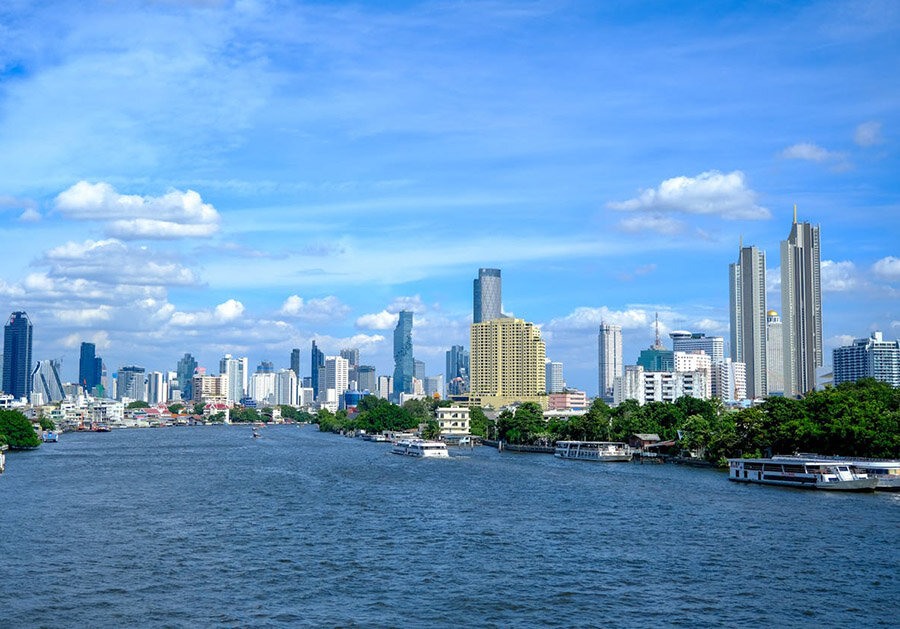Bangkok Housing Prices Rise for the Second Consecutive Quarter

In Q1 2025, the price index for new condominiums in Bangkok and its metropolitan area increased by 3.4% year-on-year, marking the second consecutive quarter of growth above 3%, according to the Real Estate Information Center (REIC) as reported by the Bangkok Post. The index rose to 160.4 points, up 0.3% from Q4 2024. This marks the first stable upward trend since the pre-pandemic era, when price growth exceeded 10% in early 2019.
Bangkok and Suburban Trends
In Bangkok, the index climbed to 163.3 points (+3.6% YoY, +0.4% QoQ), with the sharpest increase recorded in the Lower Sukhumvit area, particularly for units priced between 7.51 and 10 million baht. In neighboring provinces like Samut Prakan and Nonthaburi, the index reached 147.4 (+3% YoY, +0.1% QoQ), with significant growth in Muang Samut Prakan for budget housing.
Low-rise housing prices in the metro area remained mostly flat. The index for this segment reached 131.8 points (+0.2% YoY, +0.3% QoQ), as developers refrained from raising prices due to weaker consumer purchasing power.
Townhouse and Detached Home Dynamics
The strongest townhouse price growth was observed in Lat Phrao, Bang Kapi, Wang Thonglang, Bueng Kum, Saphan Sung, and Khan Na Yao districts — mostly in the 7.51–10 million baht segment. Conversely, townhouses in Nonthaburi priced between 2.01–3 million baht saw price drops due to inventory clearance by developers.
Detached homes in Bangkok saw the highest gains in Phra Khanong, Bang Na, Suan Luang, and Prawet. In Nonthaburi, the upscale segment over 10 million baht in Muang Nonthaburi and Pak Kret saw notable growth.
Marketing Shifts and Inventory Pressures
In response to weak demand and limited government support, developers ramped up promotions. In Q1 2025, 64.8% of condo campaigns included gifts like appliances or free interior finishes, up from 45.9% in Q4 2024. Direct discounts dropped to 15.4%, and registration fee subsidies declined to 19.8%.
For low-rise homes, the most common incentive remained full payment of transaction day fees (34%), followed by direct discounts (34%) and gifts (32%).
Despite these efforts, the market continues to face oversupply. At the end of 2024, over 235,000 unsold condos remained. Launch absorption dropped to 37%, well below the 60–70% levels of previous years. Suburban condos showed the weakest performance, even with reduced prices.
Policy Measures and Future Outlook
In spring 2025, the Thai government reduced transfer taxes from 2% to 0.01% for properties priced below 7 million baht (about $202,000), effective through June 2026. Loan-to-value (LTV) requirements were also eased to boost affordability.
Analysts forecast continued moderate growth of 2–5% in H2 2025, particularly for resale homes and central urban projects. DeepAI projects the number of condo transactions will reach 363,600 in 2025 (+3.7% YoY). According to Global Property Guide, investor focus will shift to ready-to-move-in units in Bangkok, Pattaya, and Phuket, where prices may rise 5–7%.








